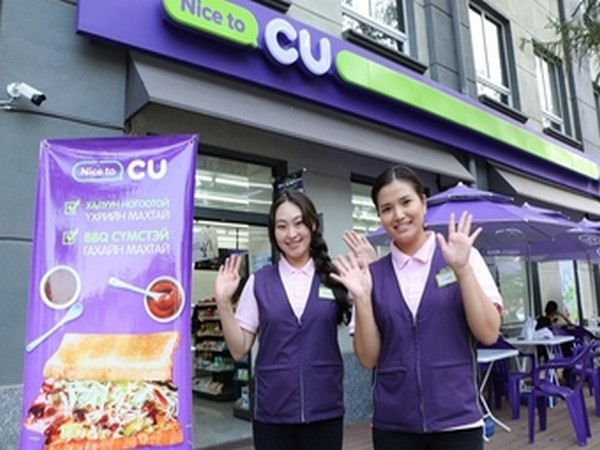GS25 vs CU to compete for 'K convenience store' position; Mongolia's first fierce battlefield abroad
GS25 chose Mongolia as the second overseas target market after Vietnam. It is expected to establish a base in Mongolia and open the first store in the first half of this year. The first store will be located in Ulaanbaatar, the capital city where the young population is concentrated.

- Country:
- South Korea
Seoul [South Korea], May 12 (ANI/Global Economic): GS25 chose Mongolia as the second overseas target market after Vietnam. It is expected to establish a base in Mongolia and open the first store in the first half of this year. The first store will be located in Ulaanbaatar, the capital city where the young population is concentrated. In Mongolia, CU already has 110 stores. Accordingly, the competition between GS25 and CU, which is fiercely unfolding in the domestic market, is expected to reappear in Mongolia.
According to the industry on Monday, GS Retail established a corporation called Digital Concept LLC with an asset of 3.7 billion won in cooperation with a local Mongolian company in the first quarter of last year. This company will serve as a base for GS25's advance into Mongolia. The GS25 operation-level team is already working on related tasks with the goal of opening the first store in the first half of the year.
GS25 is planning to advance in the form of a master franchise in Mongolia. Master franchise refers to contracting with a company that acts as an intermediate bridge in the region to run a franchise business. In other words, the head office has a structure that earns commissions for brand usage, so business risks are relatively low. Mongolia is GS25's second overseas expansion. GS25 has already opened its 100th store in Vietnam in the form of a master franchise. It is expanding the scope of advancement to Binh Duong and Vung Tau, moving away from the Ho Chi Minh-centered store. It is also preparing to open a store in Hanoi in the second half of the year. This year, it has also contributed to the expansion of its appearance by providing a paid-in capital increase to a local subsidiaries in Vietnam.
The reason the convenience store industry has recently turned to overseas is because the domestic convenience store market has entered a state of saturation. With the number of domestic stores exceeding 50,000, there are no more places for expansion. Because of this, sales are stagnating and profitability is also falling. This is the background of the analysis why companies are looking abroad to find new growth engines. The Korean Wave fever, which is blooming, is working as a boon for domestic convenience stores. Not only GS25*CU, which have opened their doors overseas, Emart 24 is also preparing to enter the Malaysian market. If GS25 opens its doors in Mongolia, a confrontation between the two major convenience stores in Korea will be unfolded for the first time abroad. In the beginning, the first battle between the GS25 and CU was in Vietnam. This is because CU tried to steadily enter the market following the GS25, which had already established itself. However, with the COVID-19 outbreak last year, CU gave up entering Vietnam.
Mongolia is 7.4 times the size of the Korean Peninsula, however, about 60% of the population is concentrated in Ulaanbaatar. In particular, 60% of Ulaanbaatar's population is under the age of 35, those who mainly visit convenience stores. It is a favorable environment for convenience stores to operate. CU opened its first store in Mongolia in 2018, and now it has grown rapidly enough to operate about 110 stores.
GS25 plans to steadily increase the number of its stores in Mongolia based on its know-how in Vietnam. Due to the popularity of K-food, the products that GS25 sold the most in Vietnam were Tteokbokki, Rabokki, and Sausage. Mongolia is also a region where the Korean Wave influence is strong, so it is predicted that it will attract customers in 2030 with a variety of ready-to-eat foods. (ANI/Global Economic)
(This story has not been edited by Devdiscourse staff and is auto-generated from a syndicated feed.)










